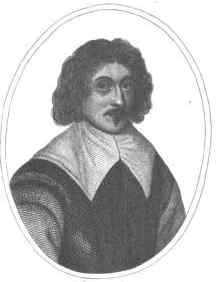Francis Hacker facts for kids
Colonel Francis Hacker (died 19 October 1660) was an English soldier. He fought for the Parliament during the English Civil War. He was also one of the people who signed the order for the execution of King Charles I of England.
Contents
Early Life and War Service
Francis Hacker was born in Nottinghamshire, England. His family was mostly loyal to the King. But Francis chose to support the Parliament from the very beginning of the English Civil War.
He became an important soldier in Leicestershire. In 1643, he was captured by the King's soldiers at Melton Mowbray. But Parliament quickly arranged for him to be exchanged for another prisoner.
Defending Leicester
In May 1645, King Charles's army captured the city of Leicester. Colonel Hacker bravely defended the city. He was captured again during this battle. Even though he was captured, people praised his courage. A special report said he gave all his captured goods to the state and his soldiers. It also mentioned that he refused to switch sides and join the King's army.
Hacker continued to fight for Parliament. In 1648, he commanded a part of the Parliamentary army. They won an important battle at Willoughby Field.
Role in King Charles I's Trial
Colonel Hacker played a key role during the trial of King Charles I. He was one of the officers in charge of guarding the King. He often led the guards who escorted King Charles to and from the courtroom.
Hacker was one of three officers who received the official order for the King's execution. He was present when the execution happened. He also signed the final order for the executioner. People who were there said he treated the King with respect.
Service Under Cromwell
After the King's execution, Hacker continued to serve in the army. He commanded a group of soldiers under Oliver Cromwell. Cromwell was the leader of England at the time. Hacker fought with Cromwell's army during their invasion of Scotland.
Hacker was a religious man. He supported Cromwell's government, known as the Protectorate. He helped stop groups who were causing trouble in Leicestershire. He also served in Parliament for Leicestershire. He said he was not a good speaker, but he was a loyal soldier.
The Restoration and His End
After Cromwell's death, England went through a difficult time. This period was called the Second Commonwealth. Eventually, the monarchy was restored, and King Charles II came to power. This event is known as the Restoration.
When the King returned, many people who had been involved in the execution of Charles I were arrested. Colonel Hacker was arrested in July 1660 and sent to the Tower of London.
During discussions about who should be forgiven, it was discovered that Hacker still had the original order for King Charles I's execution. This document was very important evidence. His wife brought the document to the authorities, hoping to help her husband. However, this evidence led to Hacker being added to the list of those who would not be forgiven.
Trial and Execution
Colonel Hacker's trial took place on 15 October 1660. He did not try to defend himself much. He simply said he was a soldier following orders. He stated that what he did was part of his duty under the command he received.
Hacker was found guilty and sentenced to death. He was hanged at Tyburn on 19 October 1660. His body was given to his friends for burial. His family later bought back his property, which had been taken by the Crown.
Images for kids
 | Aurelia Browder |
 | Nannie Helen Burroughs |
 | Michelle Alexander |



